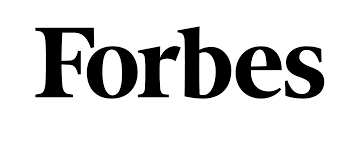Forbes: Chegg is a Cheating "Superspreader"
Chegg has amassed an $11 billion valuation by helping college students cheat. Plus, local coverage from upstate NY: cheating has "increased dramatically."
Forbes has a big, in-depth cover story (January 28) on Chegg, the notorious cheating site that has become worth billions of dollars by helping students cheat.
It’s worth a read. But here are some highlights:
It’s called “chegging.” College students everywhere know what it means. “If I run out of time or I’m having problems on homework or an online quiz,” says Matt, a 19-year-old sophomore at Arizona State, “I can chegg it.”
And
Forbes interviewed 52 students who use Chegg Study. Aside from the half-dozen students Chegg provided for Forbes to talk to, all but four admitted they use the site to cheat. They include undergrads and grad students at 19 colleges, including large and small state schools and prestigious private universities like Columbia, Brown, Duke and NYU Abu Dhabi.
And
… Already many professors and instructors have given up the fight. At UCLA, physics lecturer Joshua Samani says that he believes “an astonishingly large portion” of his students have used Chegg to cheat on his exams and quizzes. But he doesn’t try to catch them. “If you’re spending your time attempting to battle Chegg, you’re going to lose,” he says.
At the end of the 2020 spring term, North Carolina State University lecturer Tyler Johnson caught 200 students who had used Chegg to cheat on the final exam in his intro to statistics course. Of Chegg Study, Johnson says, “It’s just unconscionable. Chegg absolutely knows what students are doing.”
Chegg is a serious problem, a catalyst of cheating and misconduct.
Although it was not in this story, Chegg, for example, has a feature that allows students to snap photos of exam questions on their smart phones and get a text answer in minutes. “Take a photo of your question and get an answer in as little as 30 mins…” they say. For an extra fee, of course.
Albany NY Region: Cheating “Increased Dramatically”
The Times-Union (NY) reported (January 27) on increased cheating in both K-12 and college settings.
They report that K-12 district officials sent a note home saying, in part, “academic dishonesty in all subject areas has increased dramatically in the past few weeks." The article continues with examples of students using websites that return answers to math problems submitted by smart phone snapshots.
The article also says:
Cheating has also become more pervasive on the college level, including at the University at Albany
And
Professors are aware of myriad web programs designed to make college easier. One of the most popular sites is Chegg.com, which offers a range of tutoring services, textbook rentals, and a message board for students to compare notes. The site's database of exam questions and answers has been linked to cheating scandals at colleges across the country.



